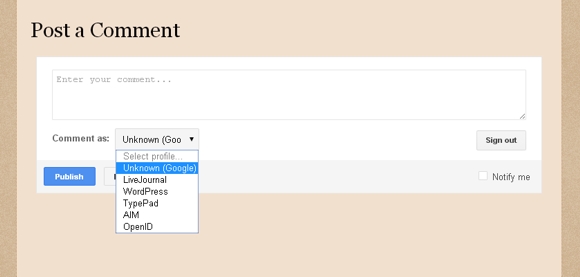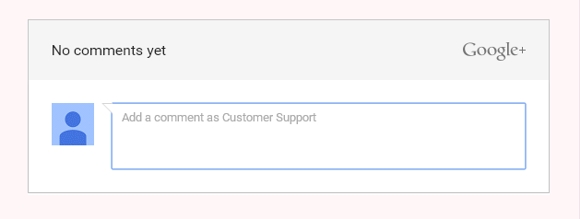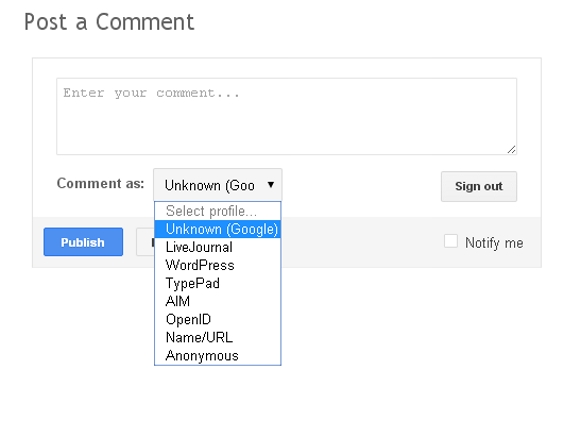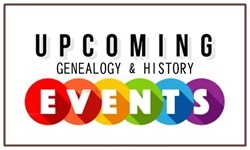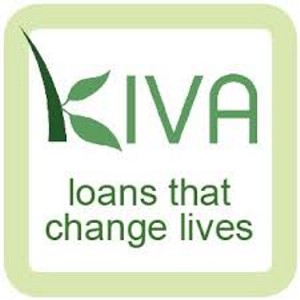Do You Have an “About Me” Page on Your Blog?
Think about it, you read an article or story and if you enjoy it you are likely to look to see who the author is, right? You’re intrigued. You want to know more about the person. Novels normally have a have a biography of the person, while articles online or in a magazine usually have a paragraph or two.
I know I read those, and I’m sure I’m not the only one.
But there are a number of bloggers (geneabloggers included) who choose to remain effectively anonymous online. That’s their choice, and I say ‘each to their own’, they have their reasons. But there are some compelling reasons to have an About Me page on your blog.
Let me start by saying that I see the usefulness of an About Me page on my own blog. I use Google Analytics to keep track of my blog stats for me, and using that I can see how many people look at what posts each day (or even hour if I wanted to). And from that I can see that my About Me page ranks in the Top 10 looked at posts on most days. So that tells me that people are interested to find out more me, and about who is writing this blog.
I’m not saying your have to have your whole life story written there, but just enough to give those reading a sense of who your are. Besides, it adds a small personal touch to your blog, and that’s also important.
My own About Me page which you can read here, is small, but I think it says enough. It includes my name, where I’m from, approximate age, experience in genealogy and my goals! But it can say whatever you want it to. I’ve seen some very extensive ones, and some very short ones. There’s no real rules.
Apart from that, if you are a member of the GeneaBloggersTRIBE, Kate Challis compiles the Blogiversary details using info from the About Me pages on each blog, and here she’s writes why she finds About Me pages so important, and gives suggestions on what she feels you should include. All of which are good suggestions by the way.
Not only that, potential extended family could well find your blog thanks to Google and cousin-bait, and would like to know a little about you before sending you an email saying “hey, I reckon we’re 4th cousins, and I can tell you all about the lost branch of your family”. But with no About Me page, they get no sense of who you are, and my hesitate.
So my suggestion is that unless you have a very good reason (and I know some do), whether you are a professional genealogist or just a hobby researcher and blogger, or even a blogger on other topics, add an About Me page, as it adds immense value to your blog.
Blog Tips – the Collection
Blogging is an amazing way to be able to share and communicate with others. You can tell stories, show photos, give facts … and more.
And it seems that genealogy blogging (aka geneablogging) keeps growing in popularity as people understand what a blog is, and realise the usefulness of them, and decide to make the leap into the exciting world of blogging.
But it’s not simply a case of sign up for a free Blogger or WordPress account, and get writing. Ok, technically you can, but there’s some things that you can do to make you blog a “great blog”, rather than “just a blog”.
Over the past few years I’ve written a few posts with tips on blogging which are useful for the general blogger as well the geneablogger. So for ease of use, I’ve compiled them together for you:
– Tips for Geneablogger Writers and Readers
– Tips for Genealogy Bloggers
– 17 Websites to Find Photos for Your Blog
– Leaving Comments on a Blogger Blog
– Facebook vs Blogging: The Pros and Cons
I’m no professional blogger, and don’t claim to be. I’m simply just someone who enjoys writing and and reading blogs. And during that time I’ve seen what makes a good blog, and what doesn’t.
So to all those who blog (particularly my geneablogging friends), keep on blogging. Remember every post you write, you are recording (and sharing) history.
Facebook vs Blogging: The Pros and Cons
Over the past couple of weeks I’ve seen a few geneabloggers writing about the topic of “is genealogy blogging dying” (see the links at the end), which are suggesting that there are far less active genealogy blogs and/or bloggers, now than there were a few years ago, and that people are turning to social media (namely Facebook) instead. They may well be, but I’m not going into that.
Personally I can see that there is a case for both, but it purely depends on what the reason behind you doing it is. So I thought I’d just run through a few of the key features of both a blog and Facebook for you, to highlight the differences.
Let me start of by saying that there are different types of Facebook accounts. There is your own personal account, there are pages, and there are groups, and all of them have a different purpose.
The Pros
– it’s free
– the amount of people there … Facebook states that they have over one billion active Facebook users
– you can have a private group on Facebook (so you can have your own non-public family group, so you can get your cousins, aunts, uncles, nephews and nieces together on Facebook to chat and share family memories and/or photos)
– you can have a group for Descendants of … to keep in touch with the wider family
The Cons
– not everyone is (or wants to be) on Facebook
– it’s not indexed by Google
– a photo or story that is put up, is essentially seen once, then lost in the feed
– not everything shows up in Facebook, so many posts simply don’t get seen
BLOGGING
Please note some blogs cost money to set up, and others are free. For this purpose I’m simply referring to the free blogs like WordPress.com and Blogger.
The Pros
– it’s free (unless you get the paid version).
– cousin-bait. Everything written on your blog is indexed by Google, Internet Archive, the NLA’s Pandora site and other search engines. So if you write about your missing ancestor from Somerset in 1823 (or wherever) … someone could well Google that person’s name, and up comes your blog post! Ta da … you have a new cousin. And hopefully you have easy-to-find contact details on your blog, and they will get in touch. It happens.
– share the family stories, as then they are being preserved, and not just a memory in your head.
– finding and sharing the stories will get the wider family interested, which is a good thing.
– sharing your research journey (both your finds and frustrations), helps educate others.
The Cons
– you need to learn “how” to set up a blog and get started, which is where a number of people get stuck. Google and YouTube a great for this, and can give you step-by-step instructions.
– time to write can be a factor
– some people don’t want to write something until they feel it’s 100% right, which is admirable, but obviously takes time. My comment is just put up what you have, with qualifications saying it’s a work in progress.
– people are likely to copy/steal your info and photos without contacting you, or reference back to you. Sadly it happens. Too often no attribution is given.
– lack of inspiration on what to write about. Personally I don’t have this problem, but my blog genre although it is genealogy-related, is wide ranging. But others have chosen to blog about a very narrow topic, be it a family or a place, a person, a military battalion, a voyage, someone’s diary and so on. Thomas MacEntee of GeneaBloggers has a list of daily blog prompts which you can use if you need something to give your blog a boost.
————–
I run both blogs and Facebook pages, and am a member of many Facebook groups. My blogs work fine for me, in that I use them to record my family stories and get them out there, but one of my Facebook pages, which is about the history of a small town, I’m still not convinced is the best place for it. For discussion it is good, but for longevity, I’m not sure that’s where I want to put all my effort in – simply because you see it on Facebook, then it’s gone, and not easily findable again.
So in my opinion a website, or even better, a wiki would serve this purpose better. But that will take time, so we’ll see what eventuates.
So as you can see both are useful. But if it’s longevity that you’re after for your history and stories, you can’t beat a blog. But for interaction, a Facebook group or page can work well. And there’s no reason why you can’t do both.
————-
RELATED ARTICLES
Julie Cahill Tarr started the whole conversation by asking “What happened to genealogy blogging?”, so have a read of her post, as well as those following, who have responded with their take on it.
Julie Cahill Tarr – What Happened to Genealogy Blogging?
James Tanner – Are We Nearing the End of Genealogy Blogging?
Thomas MacEntee – Major Changes at GeneaBloggers.com
Amy Johnson Crow – Is Genealogy Blogging Dead?
Leaving Comments on a Blogger Blog
Has anyone else had issues leaving comments on someone’s Blogger blog, or is just me?
I’m of the opinion that blogging is a two way thing. Someone writes something cool and interesting, you read it, and if you like you should leave a comment acknowledging it, or share it on social media. So when I read blogs, I do like to comment.
However some people who use Blogger have theirs set up differently, so that unfortunately won’t allow me to do so.
As these bloggers probably aren’t aware that they’re missing out on potential comments, I thought I would highlight it here.
Example 1.
This seems to be the standard set of options which it allows you to sign into to leave a comment. However I don’t use LiveJournal, TypePad or OpenID. I have no idea what AIM is, but it doesn’t seem to be anything I can use. And yes, I do have a WordPress blog, but I have a WordPress.org not a WordPress.com one, so I don’t have a WordPress account. So none of these options work for me. I will admit that on rare occasions I have used ‘Unknown’ and just typed my name in as part of the comment, but it’s not ideal by any means.
Example 2.
This is actually a different issue I have with some Blogger blogs. you’ll see that there is no dropdown list, but rather simply a box to type. However comments based on your Google+ account. Now I manage four Google+ accounts, and it seems to be permanently preferrenced to my work ones. As yet I haven’t yet figured out how to change it, although I’m familiar enough with swapping between accounts themselves on Google+. So again, I don’t tend to leave comments on Blogger posts that only have this option.
Example 3.
The image below is what I like to see on a Blogger blog. You’ll see that there’s two extra options here: Name/URL and Anonymous. The Name/URL is the option I need, and use whenever I can. I don’t have to log in to anything, I can simply add in my name, email and website. Easy. And I gather it’s an option on Blogger (just don’t ask me where). But no doubt there would be advice on where to check these on.
This isn’t meant as a criticism to bloggers who use Blogger, but rather as general feedback and information on how others find using their site for commenting.
And hopefully it might encourage a few more to go for Example 3, so more people can leave comments.

